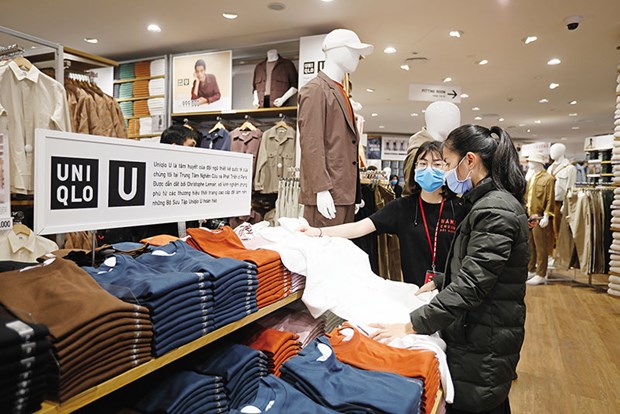21/12/2024, 12:00
Vietnamese firms urged to expand ties with Japanese investors amid new trends
Domestic firms should consider expanding partnerships with Japan in new areas like smart city and startup incubation, suggested Dr. Vo Tri Thanh, Director of the Institute of Branding and Competition Strategy.
Domestic firms should consider expanding partnerships with Japan partners in new areas like smart city and startup incubation, suggested Dr. Vo Tri Thanh, Director of the Institute of Branding and Competition Strategy.
Unleashed potential for Vietnam-Japan cooperation remains huge, he said.
However, “we are living at a time when the frequency and intensity of uncertainties are growing,” he said, adding that changes in geopolitics and finance-monetary affairs, together with the pandemic, climate change and natural disasters are creating new landscapes, which trigger a shift in global supply and value chains.
He highlighted several noteworthy factors in the supply chain shift that are relatively relevant to the regional situation, saying first of all, Asia Pacific remains crucial to the global production network thanks to its competitive advantages as well as trade and investment liberalisation which have been accelerated over the past several decades.
Secondly, the fourth Industrial Revolution and the digital transformation have optimised supply chains, leading to shortened or shrank supply chains, he continued.
Thirdly, geopolitical tensions like the trade dispute between the US and China, and the COVID-19 pandemic has set the scene for the development of new trends. Many countries now are more interested in strategic items like masks and medical supplies as well as in developing core technologies and identifying trusted partners.
Regarding bilateral cooperation in the value chain, Japan remains one of Vietnam’s largest foreign investors, with more than 65 percent of FDI flows from Japan poured into the manufacturing and processing sector in Vietnam.
The two sides have established cooperation in the areas of electronics, agricultural machinery, agricultural processing, environment, energy efficiency, shipbuilding and supporting industries, Thanh noted.
He advised Vietnamese firms to pay more attention to logistics, hi-tech agriculture, real estate, finance-banking, tourism, retail, aviation, information and technology, and infrastructure development which are being favoured by Japanese investors.
Recently, Vietnam has consulted foreign investors in multiple sectors, particularly in improving its role in global supply chains of medical supplies which the country has competitive edges, he added./.
Unleashed potential for Vietnam-Japan cooperation remains huge, he said.
However, “we are living at a time when the frequency and intensity of uncertainties are growing,” he said, adding that changes in geopolitics and finance-monetary affairs, together with the pandemic, climate change and natural disasters are creating new landscapes, which trigger a shift in global supply and value chains.
He highlighted several noteworthy factors in the supply chain shift that are relatively relevant to the regional situation, saying first of all, Asia Pacific remains crucial to the global production network thanks to its competitive advantages as well as trade and investment liberalisation which have been accelerated over the past several decades.
Secondly, the fourth Industrial Revolution and the digital transformation have optimised supply chains, leading to shortened or shrank supply chains, he continued.
Thirdly, geopolitical tensions like the trade dispute between the US and China, and the COVID-19 pandemic has set the scene for the development of new trends. Many countries now are more interested in strategic items like masks and medical supplies as well as in developing core technologies and identifying trusted partners.
A store of Japanese clothing brand Uniqlo in Vietnam. (Photo: baodautu.vn)
The two sides have established cooperation in the areas of electronics, agricultural machinery, agricultural processing, environment, energy efficiency, shipbuilding and supporting industries, Thanh noted.
He advised Vietnamese firms to pay more attention to logistics, hi-tech agriculture, real estate, finance-banking, tourism, retail, aviation, information and technology, and infrastructure development which are being favoured by Japanese investors.
Recently, Vietnam has consulted foreign investors in multiple sectors, particularly in improving its role in global supply chains of medical supplies which the country has competitive edges, he added./.
RECOMMENDED TOPICS










